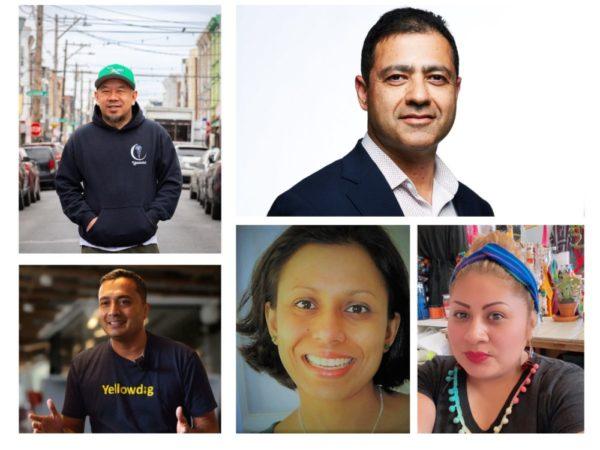Philadelphia Entrepreneurs Challenge New Overnight Curfew Amid Economic Recovery Concerns
Business Community Raises Alarm Over Nighttime Restrictions
Philadelphia’s recent enforcement of an overnight curfew has ignited widespread apprehension among local business owners. Designed to mitigate late-night disturbances, the curfew is perceived by many entrepreneurs as a threat to their financial stability, especially during a period when the city is striving to rebound from pandemic-induced setbacks. Establishments such as eateries, nightlife venues, and entertainment hubs, which depend heavily on evening patronage, fear a sharp decline in customer visits that could jeopardize their survival.
Key concerns voiced by business stakeholders include:
- Significant Revenue Decline: Projections suggest nightly income could drop by nearly one-third.
- Focus on Policing Over Restrictions: Many advocate for increased law enforcement presence rather than restrictive curfews to enhance public safety.
- Job Security Risks: Shortened operating hours may force businesses to cut employee shifts or lay off staff, worsening unemployment rates.
| Sector | Projected Revenue Impact | Employment Consequences |
|---|---|---|
| Restaurants & Bars | 25-35% decrease | High risk of layoffs |
| Nightlife Venues | Up to 40% reduction | Moderate job cuts |
| Retail Outlets | 10-15% decline | Minimal impact |
Small Businesses Struggle Amidst Curfew-Induced Economic Pressures
Since the curfew’s introduction, many small enterprises have reported a steep downturn in evening customer flow, a critical period for revenue generation. Fixed expenses such as rent, utilities, and wages remain constant, yet income during these hours has diminished drastically, placing many businesses on precarious financial footing.
Beyond lost sales, owners face operational hurdles including disrupted supply deliveries and declining employee morale. Specific challenges include:
- Reduced working hours leading to unstable incomes for staff.
- Additional costs incurred to comply with curfew regulations.
- Uncertainty about the long-term economic effects on the local community.
Business leaders are urging city officials to engage in meaningful discussions to develop solutions that safeguard both public health and economic resilience.
Community Advocates Propose Cooperative Approaches to Revitalize Local Economy
In response to growing discontent, community representatives are calling for collaborative efforts between city authorities and business owners. They emphasize the importance of strategies that uphold safety without undermining economic progress, especially for businesses reliant on nighttime activity. The curfew, critics argue, risks reversing gains made in the city’s post-pandemic recovery and dampening community revitalization initiatives.
Outlined proposals to address these concerns include:
- Enhanced Security Funding: Allocating resources to bolster safety during peak business hours.
- Financial Assistance Programs: Offering grants and flexible loans to support struggling businesses.
- Law Enforcement Partnerships: Strengthening cooperation between police and local groups to improve neighborhood safety.
- Open Dialogue Forums: Creating platforms for transparent communication among stakeholders.
| Initiative | Objective | Anticipated Benefit |
|---|---|---|
| Security Enhancement Grants | Support businesses in increasing safety personnel | Lower crime rates and boost consumer confidence |
| Flexible Financial Aid | Provide emergency funding to maintain operations | Prevent closures and sustain employment |
| Community Policing Programs | Foster trust and collaboration | Reduce crime and improve community relations |
| Stakeholder Engagement Forums | Ensure ongoing feedback and transparency | Develop adaptive policies and strengthen partnerships |
Strategies for Harmonizing Public Safety with Business Viability
To strike a balance between safeguarding residents and supporting economic vitality, city policymakers should consider adopting a more nuanced approach to curfew enforcement. Tailoring restrictions based on neighborhood-specific data and business needs can minimize unnecessary disruptions. Collaborating with business groups to establish clear safety protocols can foster a cooperative environment, encouraging voluntary adherence and mutual trust.
Recommended measures include:
- Granting exemptions or extended hours to businesses with proven security measures.
- Prioritizing increased police visibility during busy periods over blanket curfews.
- Investing in safety infrastructure such as improved lighting and surveillance systems.
- Conducting regular assessments of curfew impacts with input from affected stakeholders.
| Policy Component | Advantage | Expected Result |
|---|---|---|
| Localized Curfew Enforcement | Focused application based on area needs | Reduced negative effects on most businesses |
| Business Operation Exemptions | Preserves critical revenue streams | Supports ongoing economic recovery |
| Safety Enhancement Investments | Improved security measures | Lower crime incidence |
| Continuous Stakeholder Feedback | Informed policy adjustments | Greater community support and compliance |
Conclusion: Navigating the Path Forward for Philadelphia’s Economy and Safety
As Philadelphia implements its overnight curfew, the tension between maintaining public order and fostering economic growth remains palpable. Business owners continue to express concerns about the curfew’s detrimental effects on their livelihoods, while city officials emphasize the necessity of the measure for community safety. Moving forward, a balanced, data-driven approach that incorporates stakeholder input will be essential to harmonize these competing priorities and ensure a thriving, secure urban environment. Ongoing coverage will track developments as the city seeks solutions that benefit all residents and businesses alike.








